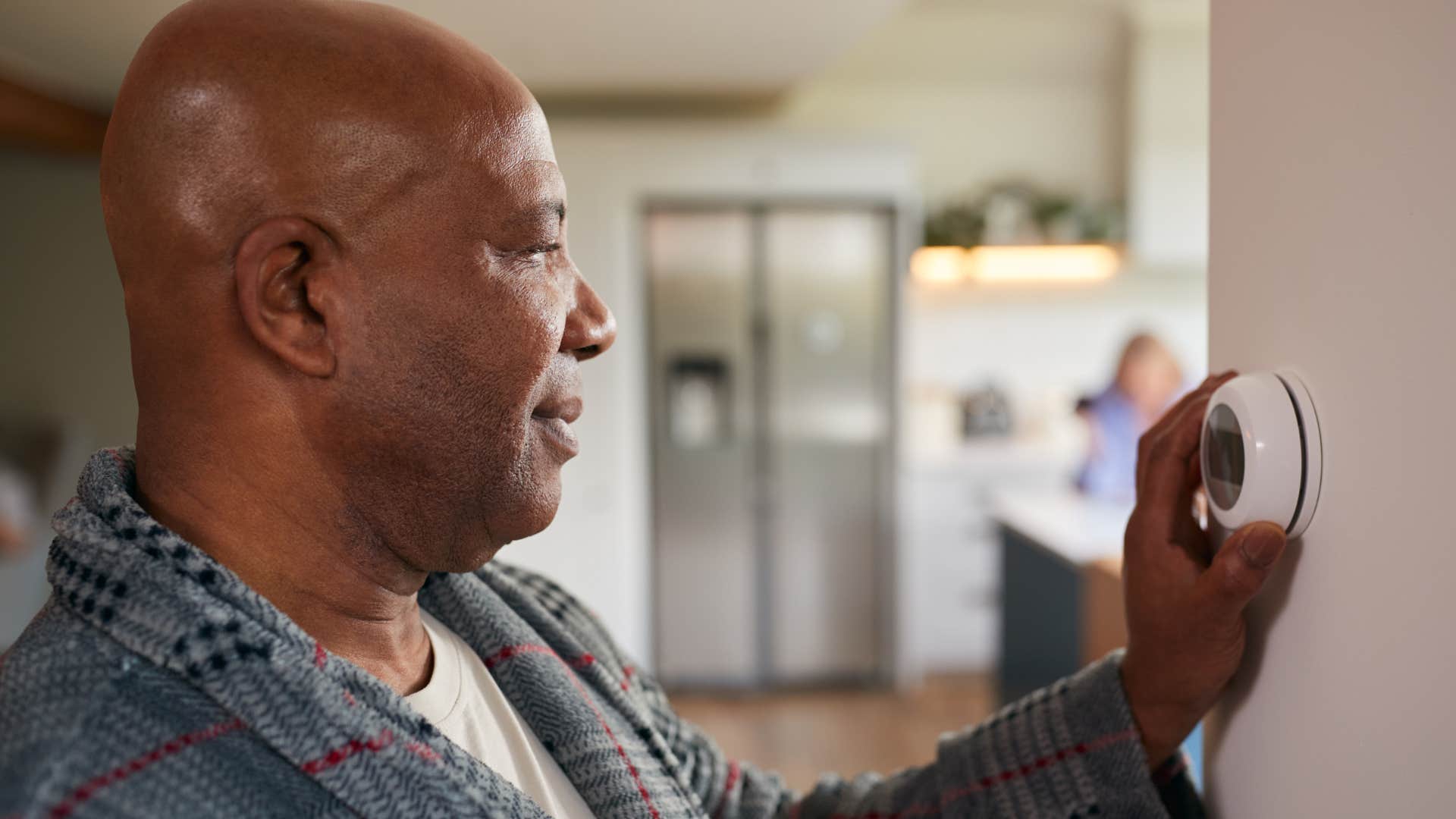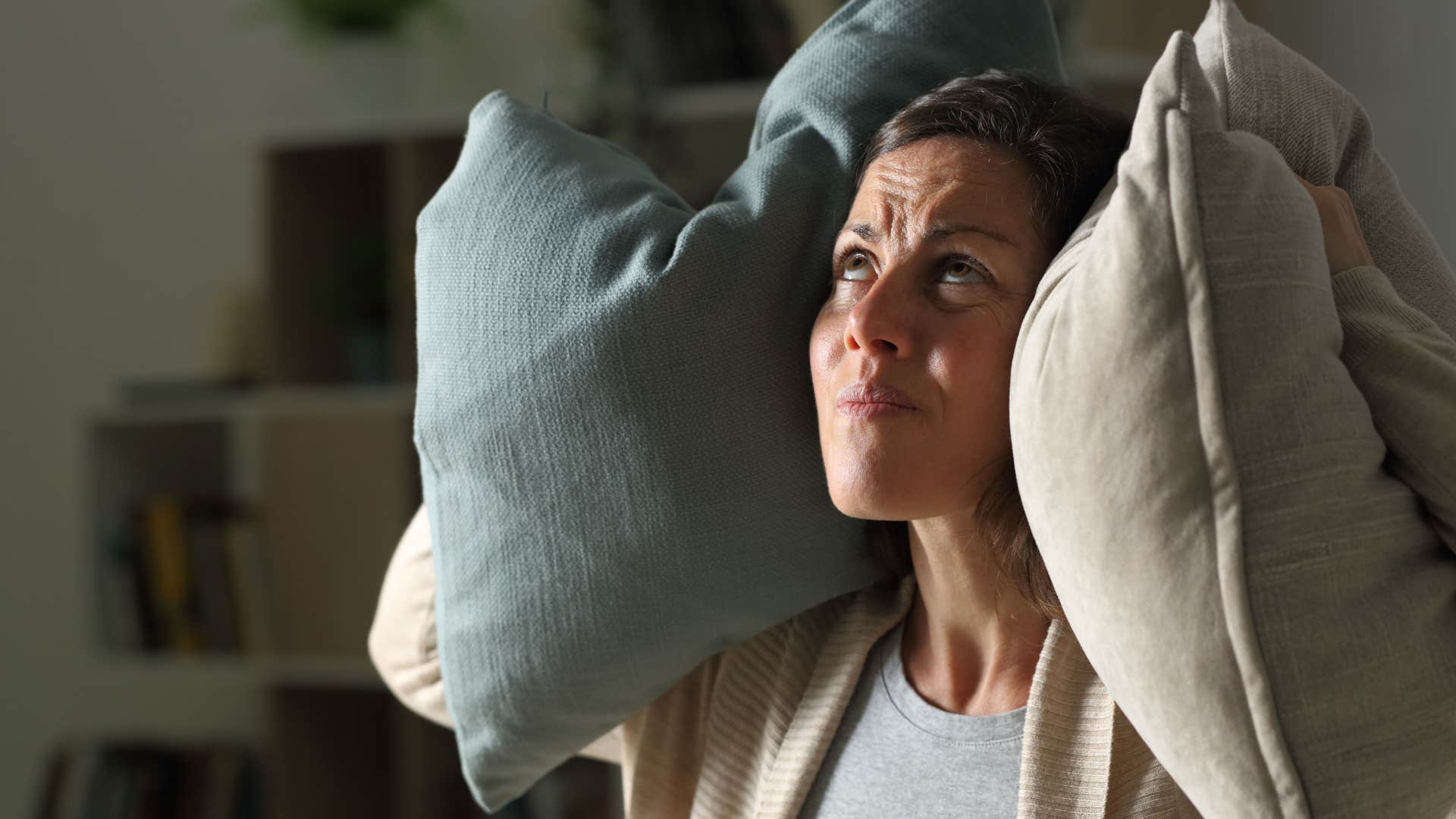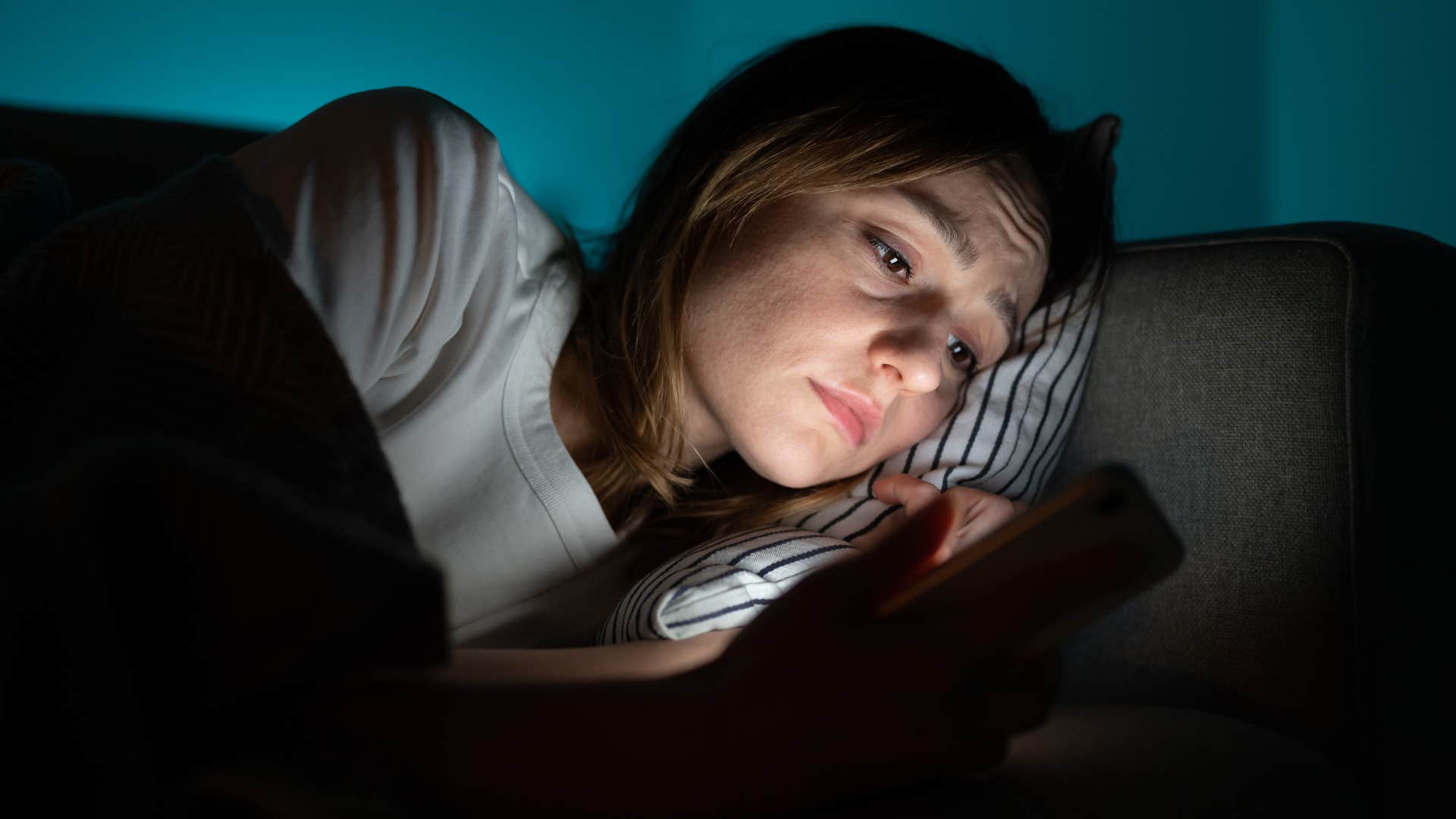11 Things You’ll Always Find In The Home Of Someone Who’s Constantly Tired
We soak up the energy of our environment.
 bedya | Shutterstock
bedya | Shutterstock The majority of Americans feel sleepy at least 3 days out of the week, according to a study from the National Sleep Foundation, which is why it’s not surprising that things like chronic tiredness, fatigue, and emotional burnout are everyday stressors in the average person’s daily life. While it’s true that you’re not alone if you’re struggling with chronic exhaustion, like physical exhaustion, Dr. Katelynn Sheaffer suggests, there is a diverse range of culprits that could be keeping you in this unhealthy cycle.
From sleep patterns to eating habits and even screen-time usage, several things keep people feeling tired in their daily lives, no matter what’s going on in their routines. Many of the things you’ll always find in the home of someone who’s constantly tired are representative of these causes, so if you’re struggling, consider addressing these random and unsuspecting items first.
Here are 11 things you’ll always find in the home of someone who’s constantly tired:
1. A phone charger right next to the bed
 Gorodenkoff | Shutterstock.com
Gorodenkoff | Shutterstock.com
A charger on the nightstand, and more specifically, constant access to their phone right from bed, is one of the things you’ll always find in the home of someone who’s constantly tired.
People who are chronically exhausted and fatigued throughout the day almost always wake up that way. Their sleep patterns aren’t great; they’re not getting enough sleep, and they wake up feeling drained and anxious. So, what’s the primary motivator behind this lack of quality and duration of sleep? Experts believe it’s their phone.
According to a study from PLOS ONE, scrolling on your phone before bed every night keeps your brain in a state of constant arousal and stress, making it harder to fall asleep and more challenging to wake up feeling rested. Of course, it’s not always convenient to set an alarm on your phone and put it away from your bed, but doing so can forcefully cultivate time — both in the morning and at night — for your brain to settle without added pressure from a phone screen.
2. Water bottles by the bed
 Pixel-Shot | Shutterstock.com
Pixel-Shot | Shutterstock.com
While drinking water before bed to stay hydrated and regulate your temperature is important for getting quality rest, drinking too much can disrupt your sleep patterns. Water bottles next to a bed are a common sight in the homes of people who are constantly tired, as they often drink so much water that they wake up at night and disrupt their sleep cycle.
It may seem unsuspecting, but the more intentional you are with food and water consumption before bed, the better.
3. A bedroom that's way too warm
 Monkey Business Images | Shutterstock.com
Monkey Business Images | Shutterstock.com
The temperature of our sleep environment can have severe impacts on the duration of sleep, quality, and even energy levels throughout the day. Not only do warmer temperatures when we’re trying to sleep make it harder to comfortably fall asleep, but they also often disrupt our body’s cooling mechanisms that allow us to stay asleep.
That’s why a warm bedroom or a thermostat set about 70 degrees Fahrenheit are some of the things you’ll always find in the home of someone who’s constantly tired. They’re not only getting bad quality sleep — being woken up and disrupted every hour — they’re also not getting enough.
4. Empty coffee cups everywhere
 Chay_Tee | Shutterstock.com
Chay_Tee | Shutterstock.com
Drinking coffee later in the day — more specifically, around 6 hours before you’re planning to sleep — can negatively affect sleeping patterns and general restfulness. Not only can too much caffeine intake or inconsistent digestion patterns make sleep quality worse, but a study from the KJFM journal argues that it can spark insomnia in many people.
That’s why empty coffee cups and evidence of too much caffeine can be some of the things you’ll always find in the home of someone who’s constantly tired. They’re not only riding the wave of caffeine intake and “crashing” during the day, they’re struggling to get the sleep they need at night, as well.
5. A noisy environment they've gotten used to hearing
 Pheelings media | Shutterstock.com
Pheelings media | Shutterstock.com
According to a Sleep Science journal, living in a noisy environment can have detrimental effects on sleep quality and duration, contributing to many people’s struggles with chronic fatigue and tiredness throughout their day.
Whether it’s noise from neighbors, city sounds from transportation, or other sources of unnecessary noise like small children, having sleep interruptions constantly throughout the night can make it hard for people to get the rest they need to feel refreshed and energized during the day.
6. A pantry full of processed food
 Pixel-Shot | Shutterstock.com
Pixel-Shot | Shutterstock.com
Eating junk foods and processed meals can feel rewarding in the moment — sparking dopamine and other positive reward receptors in the brain — but it almost always has negative effects on our mental and psychological health. From making us feel sluggish throughout the day to negatively impacting sleep quality at night, a bad diet holds a lot of power over our general well-being.
According to a study from the Nutrition journal, people who regularly eat processed foods often have worsened sleep-related outcomes — from duration, to energy levels, and quality — which is why it’s not surprising that they’re one of the things you’ll always find in the home of someone who’s constantly tired.
7. Clutter in every corner
 Lysenko Andrii | Shutterstock.com
Lysenko Andrii | Shutterstock.com
Living surrounded by clutter and a constant mess can quickly spark chaos in your mind, as well. It’s not just the visual clutter that overloads our brain and drains our energy; it’s the responsibility associated with it — all of the little responsibilities and chores we’ve put off. It’s one of the things you’ll always find in the home of someone who’s constantly tired, not just because they don’t have the energy to clean, but because it also keeps them stuck in a cycle of stress, anxiety, and exhaustion.
According to a study from the Journal of Sleep Research, this kind of chronic stress also directly affects sleep, leading to worsened quality and duration when it’s not addressed.
8. A couch that is so comfortable they can't help but nap on it
 JJ-stockstudio | Shutterstock.com
JJ-stockstudio | Shutterstock.com
While experts from Harvard Health do argue that a small 20-minute nap in the middle of the day can boost energy and productivity, spending too much time snoozing before bedtime can negatively affect wakefulness, sleep quality, and general duration.
It’s not just sleep struggles and insomnia that long midday naps spark, but many other physical issues — like a heightened risk for heart disease — that can have significant long-term consequences.
9. Heavy blackout curtains
 Gorodenkoff | Shutterstock.com
Gorodenkoff | Shutterstock.com
While blackout curtains that block light from your bedroom can be helpful in certain circumstances — like if you’re a shift worker or struggling with light pollution at home — they can disrupt our body’s natural circadian rhythm that informs our sleep patterns. If we’re not waking up naturally from light or sounds in the morning, it may be harder to truly wake up feeling refreshed and energized simply from the sound of an abrupt alarm.
It’s one of the things you’ll always find in the home of someone who’s constantly tired, because rather than changing their habits, work-life boundaries, or diets, they instead opt for “quick fixes” that keep them stuck in a cycle of exhaustion.
10. Little kids running around
 Fizkes | Shutterstock.com
Fizkes | Shutterstock.com
Let’s be honest – if you’re a parent to young children or toddlers, you know that having kids at home and the responsibility of parenting on your shoulders can be draining. It’s not only one of the things you’ll almost always find in the home of someone who’s constantly tired, but a responsibility that drains people in more ways than one.
Of course, being a parent is often a gift and a fulfilling experience, but there’s no denying it takes up a lot of emotional energy, time, physical activity, and self-assuredness to excel at.
11. Screens in every room
 DimaBerlin | Shutterstock.com
DimaBerlin | Shutterstock.com
Whether it’s their phone by their bed, a TV in their room, or a million screens with work emails and text notifications popping up 24/7, too many screens are some of the things you’ll always find in the home of someone who’s constantly tired.
According to a study from the Sleep Science journal, too much screen time during the day, and especially right before bed, can have negative impacts on sleep quality and duration. It overstimulates our brain, drains our energy, and sparks subtle chronic stress and anxiety that wears us out.
Zayda Slabbekoorn is a staff writer with a bachelor’s degree in social relations & policy and gender studies who focuses on psychology, relationships, self-help, and human interest stories.

